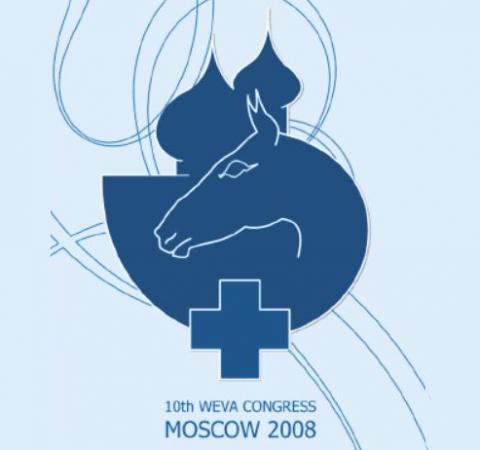Get access to all handy features included in the IVIS website
- Get unlimited access to books, proceedings and journals.
- Get access to a global catalogue of meetings, on-site and online courses, webinars and educational videos.
- Bookmark your favorite articles in My Library for future reading.
- Save future meetings and courses in My Calendar and My e-Learning.
- Ask authors questions and read what others have to say.
Management of the Broodmare
Get access to all handy features included in the IVIS website
- Get unlimited access to books, proceedings and journals.
- Get access to a global catalogue of meetings, on-site and online courses, webinars and educational videos.
- Bookmark your favorite articles in My Library for future reading.
- Save future meetings and courses in My Calendar and My e-Learning.
- Ask authors questions and read what others have to say.
Read
In order to maximise fertility and breeding efficiency and to reduce the risks of injury, it has become routine policy internationally for veterinary surgeons to provide routine gynaecological monitoring services to equine studfarms. A logical and consistent approach is essential for optimum results. The veterinary surgeon must get to know each mare intimately and individually in terms of her cyclic behaviour, her ovarian function and her uterine competence, whilst monitoring for abnormality and disease. The same principles apply for both natural mating and artificial insemination (AI) programmes, although more precise timing of insemination in relation to ovulation must be achieved for AI than is necessary for most stallions used for natural mating.
There are no simple ways for veterinary surgeons to acquire the art and experience required in order to provide this service. The principles can be learnt from others and from texts but the art and competence must be self-taught with experience of large numbers of serial examinations and follow-up of the ensuing results. It is essential to develop a logical record-keeping system for data from teasing and veterinary examinations so that studfarm staff and veterinarians can clearly and simply follow events day-to-day.
Teasing
Regular teasing remains the cornerstone of routine studfarm gynaecological management although a tendency to rely on veterinary examinations is undoubtedly developing at some studfarms, particularly those who use AI and choose to keep no teaser stallion. A keen and sensible teaser stallion is very helpful and management should devote time and patience to this procedure and keep good records. Some, more inexperienced stud grooms tend to forget that the only consistent thing about the behaviour of brood mares is their inconsistency (comments attributed to Col. Sager, a revered Kentucky veterinarian at the turn of the last century) and veterinary surgeons often need help from teasing data when interpreting less straightforward gynaecological examination findings. Teasing also has a very positive and beneficial effect on the sexual and cyclic behaviour of maiden and barren mares early in the breeding season. To deprive mares of contact with entire males is to make life more difficult for the mares, management and veterinary surgeons, alike. [...]
Get access to all handy features included in the IVIS website
- Get unlimited access to books, proceedings and journals.
- Get access to a global catalogue of meetings, on-site and online courses, webinars and educational videos.
- Bookmark your favorite articles in My Library for future reading.
- Save future meetings and courses in My Calendar and My e-Learning.
- Ask authors questions and read what others have to say.




Comments (0)
Ask the author
0 comments